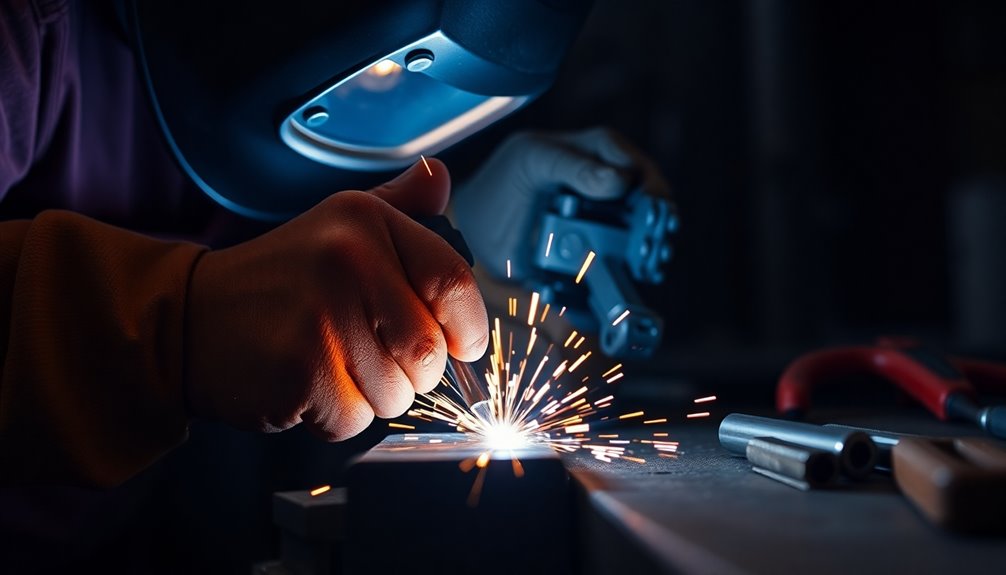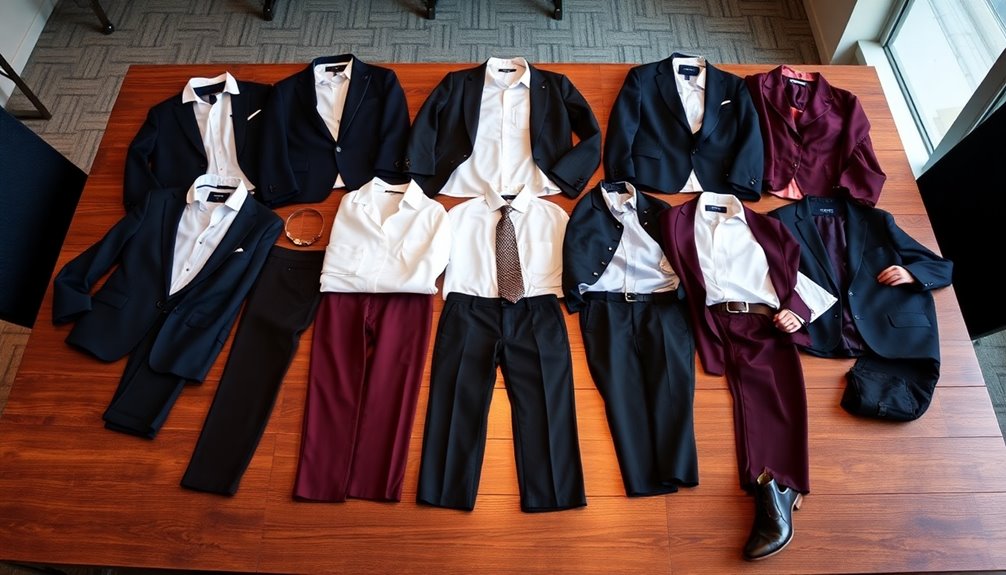When preparing for a welding interview, you'll face key questions that showcase your fit for the job. Expect to discuss your personal background and favorite aspects of welding. Be ready to detail your experience and certifications, along with your technical proficiency in various welding techniques like MIG and TIG. You'll likely need to highlight your problem-solving skills and commitment to safety practices. Also, demonstrate your ability to work within a team and manage your time effectively. Want to know which specific questions to anticipate? There's more information coming up that could give you an edge.
Key Takeaways
- Discuss your personal background in welding, including experience, training, and certifications relevant to the position.
- Highlight your proficiency in various welding techniques and familiarity with diverse materials and tools.
- Share your problem-solving approach, emphasizing root cause analysis and collaborative solution development.
- Explain your commitment to safety practices, including the use of PPE and adherence to safety protocols.
- Reflect on your strengths and weaknesses in welding, demonstrating self-awareness and a desire for continuous improvement.
General Interview Questions

When preparing for a welder interview, you'll want to start with general interview questions that help the interviewer get to know you better. They may ask you about your personal background, so be ready to share a bit about yourself.
Think about your favorite aspects of welding; what keeps you passionate about your work? Conversely, they might want to know your least favorite parts, showing your ability to reflect on your experiences.
You should evaluate your strengths and weaknesses in welding skills honestly, as this indicates self-awareness.
Finally, be prepared to discuss your motivation for applying and what you expect from the job. This information helps employers see how you might fit into their team and culture.
Experience and Qualifications
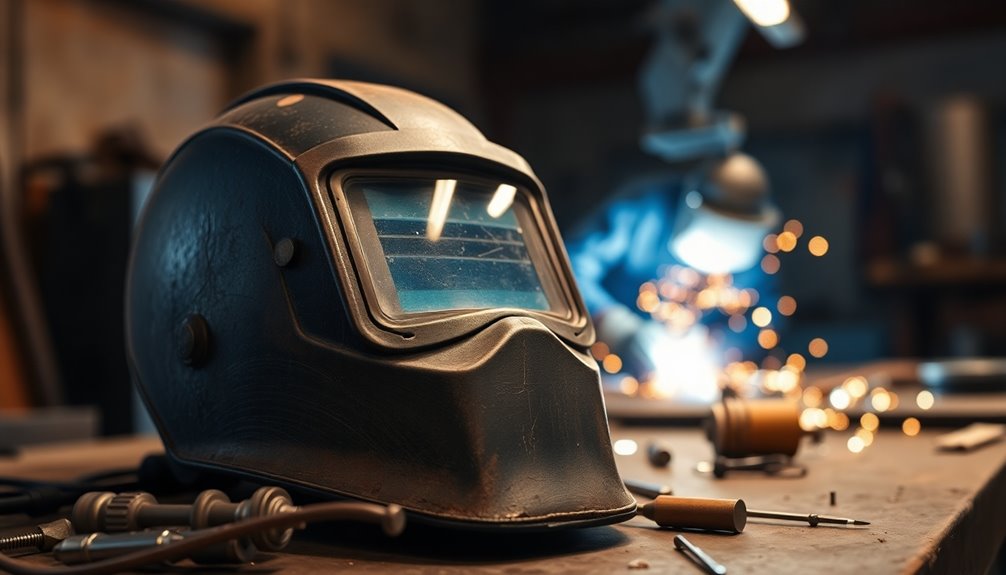
As you move forward in the interview process, discussing your experience and qualifications becomes essential. You want to clearly demonstrate your background and the skills you've acquired over time.
Here are four key areas to focus on:
- Welding Experience: Detail the types of welding you've performed and the industries you've worked in.
- Training: Share where you've received your training, including any specialized programs.
- Certifications: Highlight any relevant certifications and explain their significance in your career.
- Previous Responsibilities: Outline the key responsibilities you held in past roles, emphasizing how they relate to the position you're applying for.
Technical Proficiency

Technical proficiency is essential for welders to excel in their roles and deliver high-quality work consistently. You need to demonstrate a strong understanding of various welding techniques, such as MIG, TIG, and stick welding.
Familiarity with welding tools and equipment is vital, as is the ability to perform accurate measurements and calculations. During interviews, be prepared to discuss your experience with different materials, like steel and aluminum, and explain how you guarantee precision in your work.
Employers value your ability to adapt to new technologies and methods, so highlight your commitment to continuous improvement. Show that you're not just skilled but also passionate about mastering the craft, which sets you apart from other candidates.
Problem-Solving Techniques
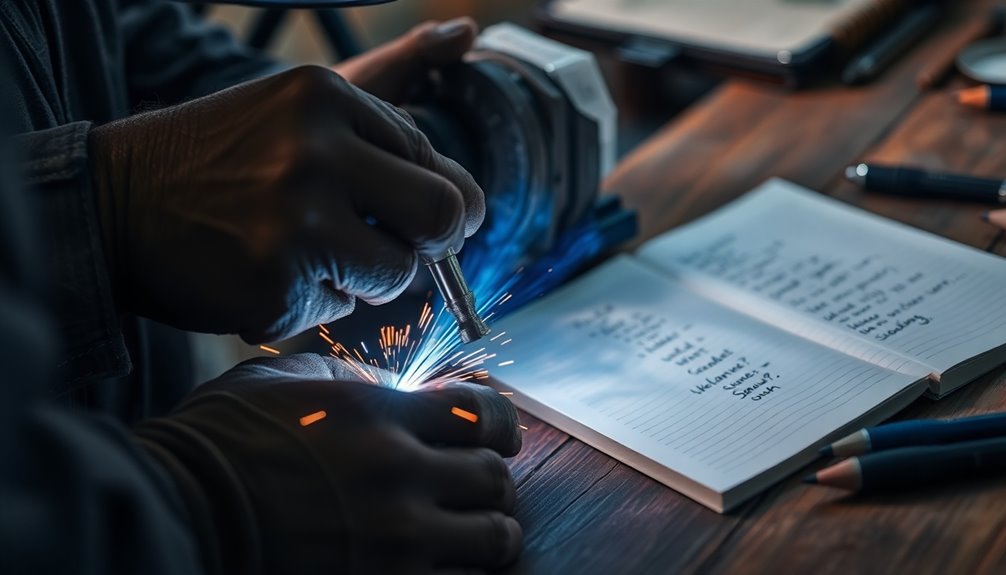
Mastering welding techniques isn't just about skill; it also involves tackling challenges that arise on the job.
You'll need effective problem-solving techniques to guarantee quality and efficiency. Here are some strategies to contemplate:
- Analyze the Issue: Identify the root cause of the problem before jumping to solutions.
- Brainstorm Solutions: Collaborate with colleagues to generate multiple approaches for resolving the issue.
- Test and Implement: Choose the most viable solution and put it into action, monitoring the results closely.
- Reflect and Learn: After resolving the issue, take time to review what worked and what didn't, guaranteeing continuous improvement.
Safety Practices
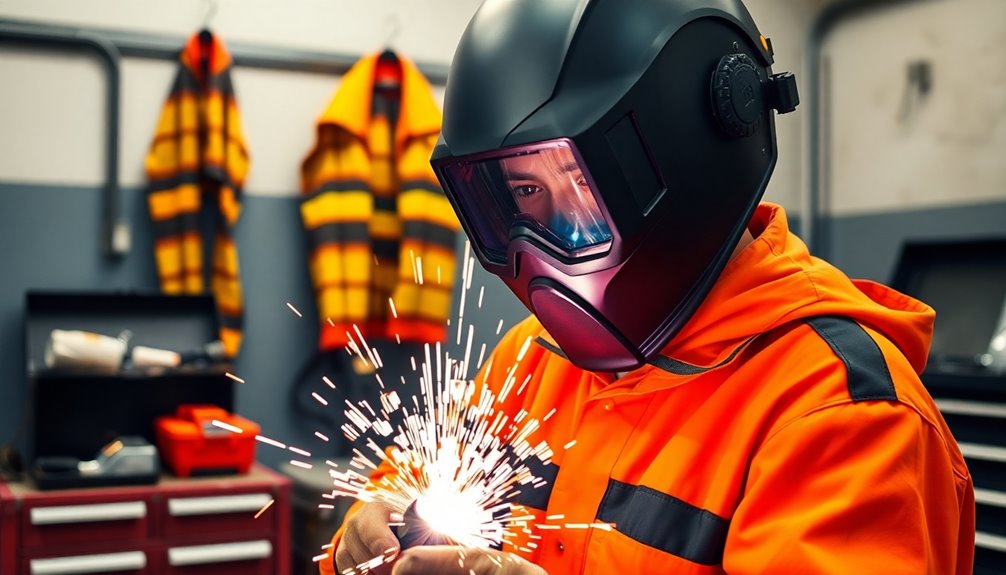
Recognizing the importance of safety practices in welding can make a significant difference in your work environment. You need to prioritize using personal protective equipment (PPE) like helmets, gloves, and aprons to shield yourself from sparks and heat.
Always follow safety protocols, including proper ventilation and fire prevention measures. Familiarize yourself with the Material Safety Data Sheets (MSDS) for any substances you're using to understand their hazards.
Regularly inspect your equipment for defects and report any issues immediately. Additionally, stay updated on safety codes and regulations in your area.
Teamwork and Collaboration

Effective teamwork and collaboration are essential in the welding industry, where the success of a project often hinges on how well you work together with your colleagues.
To excel in this environment, consider these key aspects:
- Communication Skills: Clear dialogue helps prevent misunderstandings and keeps everyone on the same page.
- Conflict Resolution: Being able to address and resolve disputes quickly fosters a positive work atmosphere.
- Shared Goals: Aligning your objectives with your team's guarantees that everyone is pulling in the same direction.
- Building Relationships: Strong connections with your colleagues create a supportive environment that enhances productivity.
Time Management Skills
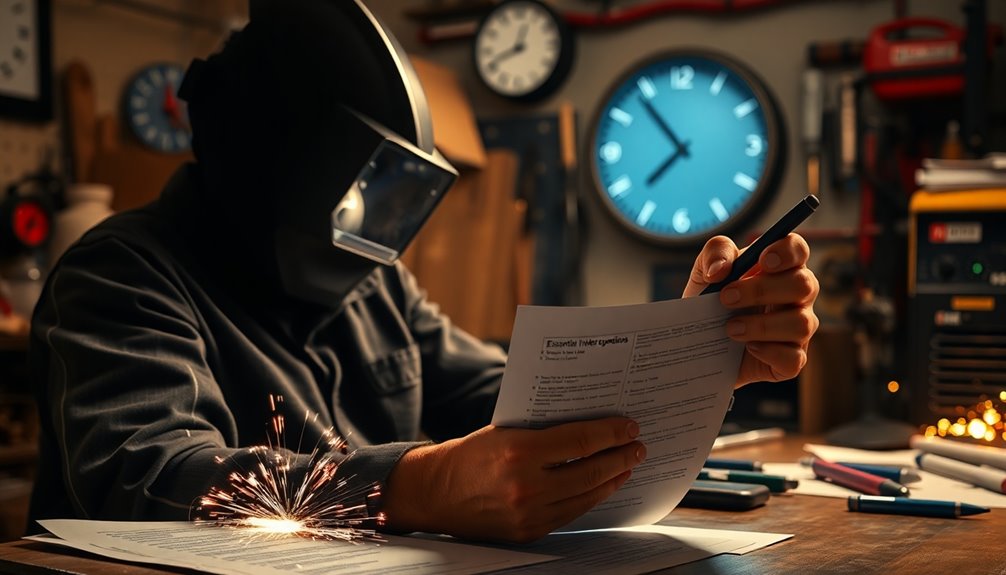
In the fast-paced world of welding, managing your time efficiently can make all the difference between meeting deadlines and falling behind. To excel, prioritize your tasks and develop a solid schedule. Use strategies like breaking projects into smaller tasks and setting realistic deadlines.
Here's a quick table to illustrate effective time management:
| Strategy | Description |
|---|---|
| Task Prioritization | Focus on urgent and important tasks first. |
| Scheduling Techniques | Allocate specific time slots for different tasks. |
| Quality Assurance | Review work at each stage to avoid rework. |
Career Aspirations

When it comes to career aspirations in welding, having a clear vision can guide your professional journey. Understanding what you want to achieve is essential.
Here are some key points to contemplate:
- Short-Term Goals: Identify skills you want to enhance in the immediate future.
- Long-Term Objectives: Visualize where you see yourself in five or ten years.
- Specialization: Decide if you want to focus on a specific welding process or industry.
- Continuous Learning: Commit to ongoing education and training to stay competitive.
Frequently Asked Questions
How Do You Handle Stressful Situations While Welding?
When you face stressful situations while welding, you stay calm and focused. You take a deep breath, assess the problem, and prioritize your tasks.
It's crucial to communicate with your team if you're feeling overwhelmed. You might also take short breaks to clear your mind.
What Motivates You to Excel in Your Welding Career?
What motivates you to excel in your welding career?
You thrive on the challenge of creating precise, strong welds that stand the test of time. Each project fuels your passion for craftsmanship, pushing you to learn new techniques and improve your skills.
You find satisfaction in overcoming obstacles and meeting deadlines, knowing your work contributes to a greater purpose.
Collaboration with your team also inspires you, as you share knowledge and celebrate successes together.
Describe a Time You Learned From Failure in Welding
Facing failure fosters growth.
Once, you misaligned a vital weld on a high-stakes project. Instead of dwelling on disappointment, you dissected the details, pinpointing what went wrong.
You sought advice from a seasoned welder, absorbing their insights. This experience not only sharpened your skills but also strengthened your resolve.
Now, you approach challenges with a proactive mindset, knowing that every setback is a stepping stone toward success in the welding world.
What Qualities Do You Look for in a Welding Mentor?
When you're considering a welding mentor, look for someone with extensive experience and a passion for teaching.
They should be patient, approachable, and able to explain complex concepts clearly.
A good mentor also values safety and demonstrates problem-solving skills in real situations.
You want someone who encourages your growth and provides constructive feedback, helping you refine your techniques and build confidence.
Ultimately, they should inspire you to aim for excellence in your welding career.
How Do You Stay Updated on Industry Trends and Techniques?
To stay updated on industry trends and techniques, you should regularly read welding magazines, follow reputable online forums, and join professional associations.
Attending trade shows and workshops can also keep your skills sharp. Networking with fellow welders helps you exchange knowledge about the latest methods.
Don't forget to watch instructional videos or tutorials online; they're great for visual learning. Keeping a proactive approach guarantees you remain competitive in the ever-evolving welding field.
Conclusion
To sum up, being well-prepared for your welding job interview can make all the difference. By anticipating these essential questions, you'll be ready to showcase your skills and experience like a pro. Remember, it's not just about answering questions but also about demonstrating your passion for welding. So, gear up and go in there with confidence—after all, you've got this! Just think of it as a chance to show off your welding superpowers.
Eugene brings a fresh, dynamic voice to our platform as one of our talented Writers. Specializing in research-driven content, he explores the latest findings in psychology and personal growth, translating them into actionable insights for our readers. Eugene’s work is fueled by a curiosity about what makes us tick and a desire to help others unlock their potential.
